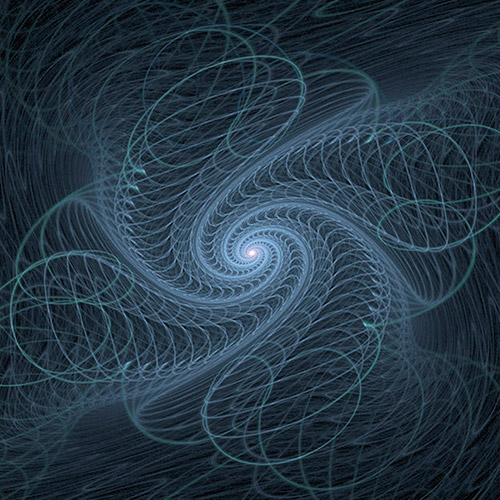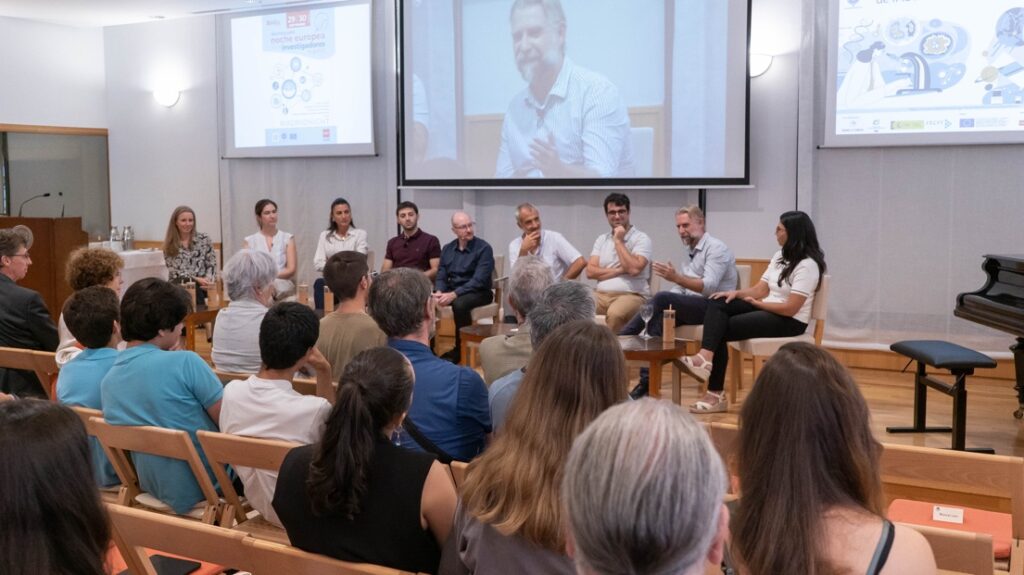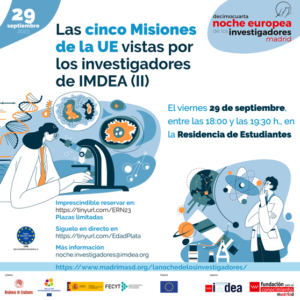
We all can and must work for a better and more sustainable future. IMDEA researchers do it every day.
October 5, 2023

On Friday 29 September, researchers from the seven IMDEA Institutes met in the auditorium of the Residencia de Estudiantes in Madrid to explain how they contribute to the fulfilment of the 5 EU missions, the common goal of which is to achieve a better and more sustainable future for all.
They said that for them, as researchers and as citizens, it is essential to help curb climate change, restore our oceans, get healthier food, fight cancer or work towards smarter and more sustainable cities.

The European Researchers’ Night in Madrid 2023, coordinated by the Fundación para el Conocimiento madrimasd, is an action framed in the Horizon Europe Programme. In Europe, more than 400 cities are joining the celebration. So did cities in 16 Latin American countries.
The 5 EU missions as seen by IMDEA researchers (II)
José Manuel Torralba, researcher and director of IMDEA Materials, and Manuel Carro, researcher and director of IMDEA Software, were the masters of ceremonies who introduced Lidia Daimiel (IMDEA Food), Adriana Souza (IMDEA Energy), María de Nicolás (IMDEA Materials), Valle Palomo (IMDEA Nanoscience), Guillermo Suárez de Tangil (IMDEA Networks) and Facundo Molina (IMDEA Software).
All of them spoke about the projects and lines of research they are working on in their institutes directly linked to the aim of helping to fulfil one of the 5 missions that the EU has set out in the Horizon Europe plan.
In the talk they held among themselves and with the audience, many things became clear. For example, that at IMDEA we are extremely fortunate to have teams in which researchers with a very diverse background and specialisation collaborate, as we are aware that today’s problems, all of them very complex, need to be tackled from many scientific disciplines at the same time. Or that research is within the reach of anyone who has a vocation, enthusiasm and is not afraid of effort. They also agreed that, although it is not always easy, they feel fortunate to be able to dedicate themselves to something they love, in which they believe, and with which they believe they help everyone.
Some showed that the research they and their colleagues carry out in their institutes has a lot to do with the 5 missions that the EU considers to be priorities. Others focused more on some of them and on other objectives of the European Green Deal.
Nanosensors that help diagnose and treat diseases, Precision Nutrition that helps improve our health, efficient and sustainable water purification by imitating nature, how to convert organic waste into “green” fuels, the future of hydrogen as a “clean” energy source, how to manufacture materials using less raw materials and less energy, how to make communication networks and software more secure, faultless and energy-efficient… All this and much more was discussed at the Residencia de Estudiantes in Madrid.
The researchers also revealed their personal side by answering questions such as: What are their hobbies? Why did they decide to go into science? What would they like to achieve with their work? Would they give advice to young people on what career to choose?
It was an immense pleasure for us to meet again with the public at the Residencia de Estudiantes in Madrid to share a part of our work. Many thanks to the Residencia for offering us this unique setting. Many thanks to the IMDEA researchers who transmitted their enthusiasm to all of us. And, of course, many thanks to the public who accompanied us.
We are counting on you all for the next edition of The European Researchers’ Night in Madrid!
It is very important for us to know your opinion. Please let us know if you liked “The 5 EU missions as seen by IMDEA researchers (I)” (coordinated by @IMDEA_Software) by completing the following questionnaire: https://beacons.ai/imdeainstitutes
If you missed our activity or want to remember it, you can watch it: https://youtu.be/2v0psTMLTRI

MADRIDNIGHT is a science outreach project, coordinated by the Fundación madri+d and funded by the European Union covered by the Horizon Europe Programme, belonging to the Marie Skłodowska-Curie actions under grant agreement No 101.061.343.


